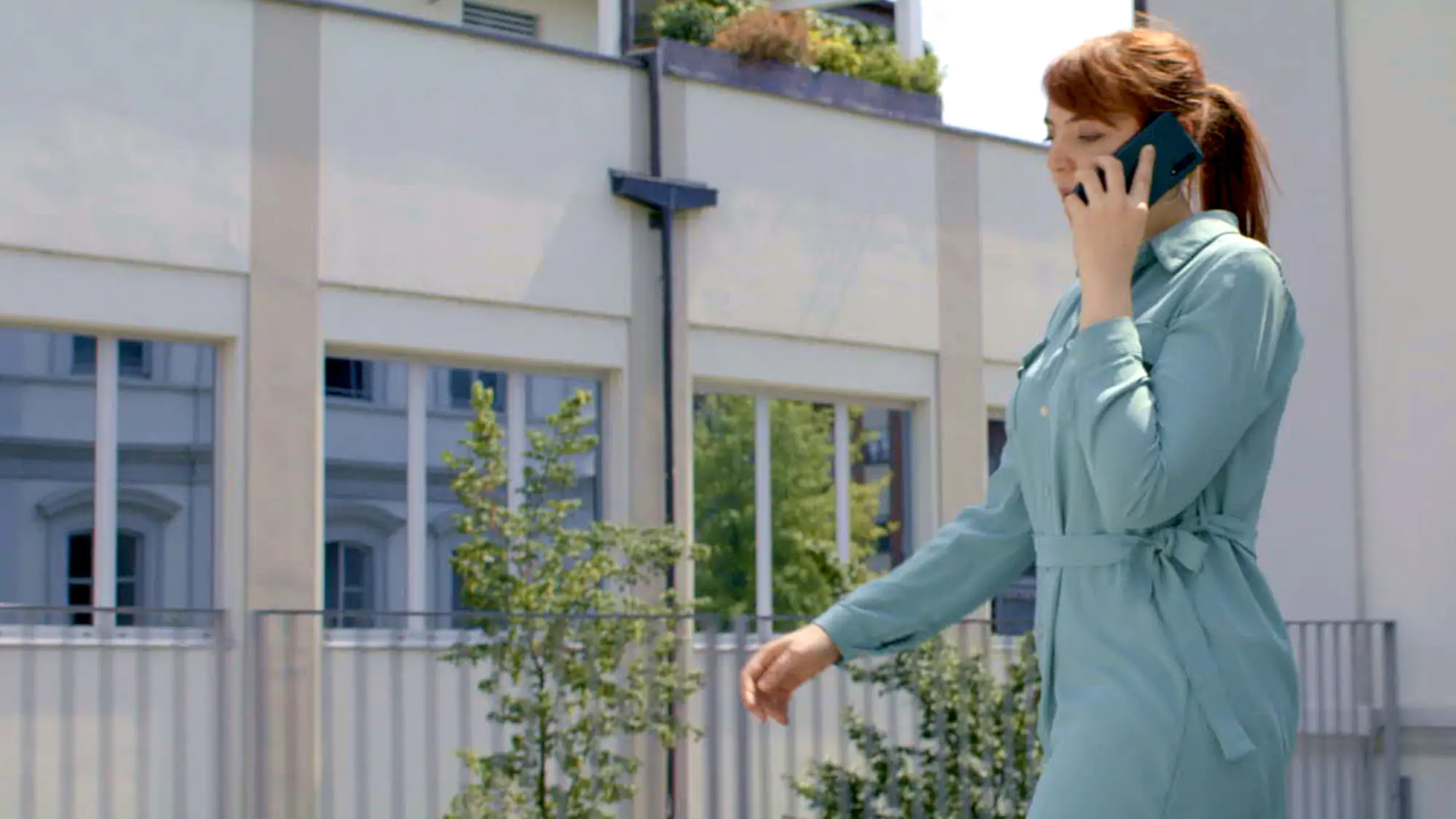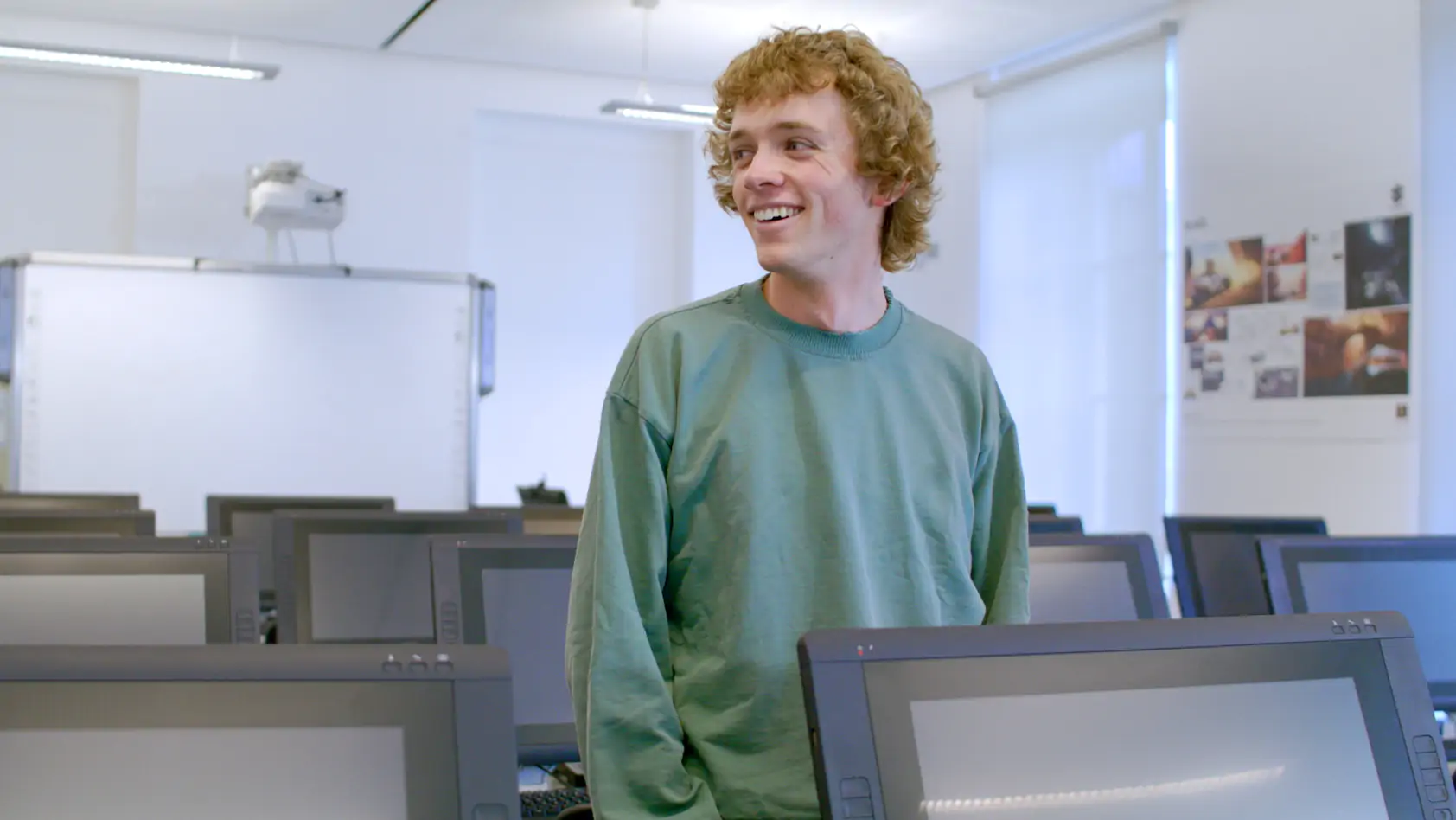

HOW TO BECOME
AN IAAD. STUDENT
THE THREE-YEAR BACHELOR’S COURSES
ADMISSION REQUIREMENTS
Admission to the IAAD. bachelor’s courses is subject to the following requirements:
- Applicant must be in the fifth year of secondary school or in possession of a secondary school diploma or equivalent five-year training course;
- A passing grade on the IAAD. admission test.
The main objective of the IAAD. admission test is to verify the applicant’s analytic skills as well as the motivation and interests that led the applicant to apply to the bachelor’s course.
INTERNATIONAL STUDENTS
international students interested in pursuing a bachelor’s course taught in Italian must present official certification of their knowledge of Italian, with a minimum proficiency level of intermediate B2 (except for cases of exemption related to entry procedures, residence and registration of international students published annually by the General Secretariat of the Ministry of Education, Universities and Research).
STEp 1. APPLYING
Before submitting your application, if you haven’t had the opportunity to speak with the Orientation office we suggest you call or email them to arrange an interview to discuss the details of the course you are interested in, so that you can apply with greater knowledge.
Please include the following with your application:
- Curriculum Vitae with a description of completed studies;
- A cover letter;
- A small portfolio of your works (optional).
Note for foreign students
During the application phase, we recommend that you start requesting the certificate of comparability of your qualification through the CIMEA portal.
This procedure is required by IAAD. FOR THE VERIFICATION OF ADMISSION REQUIREMENTS.
Obtaining / issuing the certificate of comparability is a necessary condition for the evaluation of the candidacy and appears to be contextual to taking the admission test.
The cost of the CIMEA service is approximately € 150.00 (this amount may be subject to annual variation).
STEP 2. ADMISSION TEST
Required only for the bachelor’s courses
A passing grade on the admission test is required for enrollment in IAAD.’s bachelor’s courses. You can select which test session to attend by registering online and completing the required steps.
Testing takes place in February and the test dates are published on IAAD.’s website each year in January.
International students (and Italian students who are working or studying abroad) can take the test virtually on a different date by Skype or Google Meet. To meet specific needs and taking into consideration time zone differences, the date and time of the test will be agreed upon by email with the Orirentation office after the online registration is completed.
NB: if you are unavailable on one of the test dates indicated on the IAAD. calendar, we can consider different dates upon request. For more information make an appointment with the Orientation office.
The admission test costs € 100,00.
The test fee can be paid by PayPal.
On the test registration form, you will be asked to attached a scanned copy of your fiscal code and ID (identity card or passport). Then, you will be automatically redirected to PayPal to complete the transaction.
NB: registration for the admission test will be considered incomplete until payment of the test fee has been received.
In the days before your chosen date, you will receive an email with useful information about taking the test.
The admission test fee is nonrefundable.
In the event that you have registered to take the test and are unable to participate on the test date due to personal reasons, you may request to postpone to a later date within 5 days of the original date. Otherwise, your registration will be voided and you will need to re-register and pay the fee again.
The admission test takes place online and consists of the following steps:
- identification of test participants;
- practical test: case study analysis and evaluation (from your own point of view), with your proposed alternatives. The test aims to measure the ability to understand, analyze and think creatively as well as understand the candidate’s motivation and aptitude for the chosen course;
- individual motivational interview: the candidate will present the work done in the practical test.
The motivational interview provides the opportunity to get to know each other and to learn about the attitudes and motivation that lead to student success at IAAD.
STEP 3. ENROLLMENT
After the test you will receive an official email with your results within 10 days. If you have been admitted into the course, you will have 15 days to accept the offer. Within 15 days of the official communication, you will be able to complete your enrollment by paying the registration fee.
N.B: The registration fee officially reserves your place in your course of interest and is nonrefundable. In the event that you are finishing the final year of secondary school, the reservation is considered a pre-registration pending the successful completion of final secondary school exams. Following this confirmation, we will complete the enrollment and provide you with the necessary documentation.
Enrollment in subsequent years (students in progress and out of course)
Enrollment in the years following the first takes place automatically when the Student Secretariat records the payment of the first installment of the registration fees.
To find out the deadlines and payment methods click here (or contact the academic office or download the contract).
AFTER ENROLLMENT
Once enrollment is complete, with the required documents received and a copy of the enrollment contract received and countersigned by the Director’s office, you will officially be part of the IAAD. community.
You will receive updates related to the start of the academic year and will begin communicating with IAAD.’s academic office, which will provide initial information about the official calendar and course schedule for the first semester.
POST-GRADUATE AND MASTER’S COURSES
ADMISSION REQUIREMENTS
The Master’s courses of the first level are for students who have completed a three-year bachelor’s degree or recognized undergraduate program valid for admission.
The Master’s courses of the second level are for those who have finished an Academic Diploma of the second level, specialist degree or equivalent international post-graduate degree.
If you have a degree from outside of Italy and are interested in enrolling in a Master’s of the first or second level, your degree must be recognized as suitable for the chosen Master’s program.
n.b.: Completion of a Master’s of the first or second level does not guarantee entry into educational courses of the third level (for example Ph.Ds or specialization schools).
Applicants to the Master’s programs must be in possession of a Bachelor’s degree. The application process can be completed in one simple step, by forwarding the following documents:
- CV
- Letter of interest
- Portfolio of works (if you do not have one yet, we do not consider this a limitation to your eligibility)
These documents will allow us to evaluate your eligibility for admission so that we can provide feedback in a timely manner.
LANGUAGE REQUIREMENTS
To attend IAAD.’s Master’s program taught in English, you must present an official certificate of English proficiency indicating a minimum of level B2. (see LANGUAGE CERTIFICATES).
Visit the general MASTER’S/TWO-YEAR MASTER’S pages.
CONTACT US

ARE YOU AN EU STUDENT?
Citizens of the European Union can stay in our Country for up to 3 months without any conditions or formalities, except in possession of a valid identity document for expatriation issued by their country. After 3 months from their entry, it is necessary to register at the Registry of the place of residence. For registration in the Registry, it is necessary to submit the following documents: IAAD. registration certificate, health coverage and documentation certifying economic availability.
ARE YOU A NON-EU STUDENT?
Italian immigration law provides that non-European Union citizens who want to stay in Italy for more than 3 months must apply for a residence permission within 8 days from their entry into Italy.
It is possible to collect the kit for signing the residence application’s permission at any post office where the “Sportello Amico” is present.

